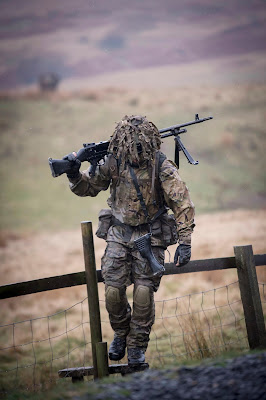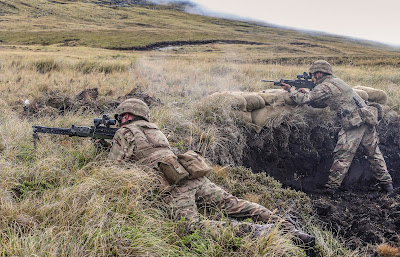On the Twenty-fourth of March,Twenty Twenty-one,insurgents of the Islamic State of Iraq and the Levant attacked the town of Palma in Mozambique killing civilians,includings citizens of the United Kingdom,herein we shall consider how the proposed Independent Navy For An Independent Nation might have responded to this event.
The town of Palma shall lie within the area of responsibility of the East Indies squadron,which shall be commanded by a commodore (who shall also be in administrative command of the Fourth Mining Squadron) who shall answer to the eastern patrolling division commander,a rear admiral (who shall also be the administrative commander of the Third Fisheries Protection Division).
The rear admiral in turn shall answer to the vice admiral commanding the away flotilla (who shall also be the administrative commander of the First Frigate Flotilla),who shall be subordinate to the full admiral in administrative and operational command of the active Second Fleet.
The East Indies patrolling squadron shall normally have a patrolling brig,a mining sloop and a destroying frigate at it's disposal which it shall commit to Combined Task Forces 151,150 and 152 as required.
The Persian Gulf shall lie within the area of responsibility of the East Indies squadron,however,for the last thirty years one of the four battle divisions shall have been operating in this area continually and,in this case,the Third Battle Division's operational commander,a rear admiral (who shall also be the administrative commander of the Flying Division) shall have been appointed Commander In Chief Persian Gulf,flying his flag in the Second Fleet's flagship Her Majesty's Ship Africa,alongside the full admiral commanding the fleet,the major general commanding the First Royal Marines division,the commodore commanding the fleet's air assets and their subordinates.
Also aboard Africa shall be her,half sized,peace time air wing of two dozen Furious fighting aircraft,half a dozen Perseus patrolling aircraft and a dozen Hermes helicopters along with fifteen hundred men of the Seventh Royal Marines Light Infantry Battalion Group (a battalion reinforced with divisional assets,including two troops of Royal Marines Artillery),and the flotilla's third echelon medical facilities.
Her Majesty's Ship Royal William,the Third Battle Division's replenisher and the other half of Africa's battle squadron,shall carry half of the combat supplies and headquarters and train elements of the fleet's Fifth Royal Marine Battalion Group,the rest of which shall be dispersed as ship detatchments on frigates and other vessels of the Second Fleet.
Each of the big Falkland class frigates (Falcon,Fearless,Formidable and Foudroyant of the battle division's destroying squadron and Her Majesty's Frigates Fiji and Furious of the eastern patrolling division) shall carry a troop of forty marines from the Fifth Royal Marine Battalion Group in addition to a flight of two Hermes Helicopters and various jollyboats,pinnaces,launches,lighters and vehicles.
Her Majesty's Submarine Courageous shall also be lurking somewhere in the vicinity of the East Indies station.
All of these vessels shall be logistically supported by a small Royal Naval Harbour Service squadron at Diego Garcia,one of four regional logistical support areas,the others being Bermuda,Gibraltar and the Falklands,and whilst each base area shall be unique,all may be categorised as either soft,firm or hard depending on their value and the cost of defending them.
For example,the proposed east coast base area shall include a wind farm,a biomass power plant,a blast furnace,a steel mill,a ship breaking yard,a ship building yard,refitting docks,a naval dockyard,an armaments depot,a fuel depot,a marine barracks and civilian housing,in an area with secure supply lines and defensive depth,surrounded by multi layered air,surface and submarine defences,all of which shall necessitate and facilitate it's hard defence.
On the other hand,the proposed Waterguard anchorage at Ducie shall offer only a small anchorage,little land,no industry,no population,no defensive depth and tenuous supply lines in an area of little strategic value,therefore,it shall be softly defended,permanent facilities being limited to a dredged channel,moorings,dolphins and navigation marks,Her Majesty's Waterguard Cutter Kingfisher (an Albatross class patrolling cutter,that is,an escorting sloop fitted for but not with it's fighting systems) and the Pegasus aircraft based there being supported by the medium sized depoting vessel Fort Detroit carrying thirty thousand long tons of fuel and armed only to repel pirates,smugglers,poachers,sabateurs and terrorists,but able to run away bravely when faced with more substantial threats.
Diego Garcia shall fall between these two extremes,with tenuous supply lines,little land and no industry or population but with a large anchorage and air base,in a strategic position,far from potential threats,with enough land to accommodate an army garrison and over the horizon radar systems,therefore,it shall be firmly defended by an infantry company,artillery battery and a flight of Royal Flying Corps' Furious aircraft.
Her Majesty's Ship Polyphemus,a large Antaeus class Royal Naval Harbour Service depoting vessel,shall deploy to Diego Garcia for a year at a time carrying three hundred thousand long tons of fuel and thousands of tons of ordnance and dry stores with a pair Royal Naval Harbour Service Aidful class tug boats and an eighty foot Albacore class patrolling launch on her deck and aircraft in her hangar along with the requisite command,logistic,medical,maintenance and hotel facilities,and supplies for the army garrison.
Civil Waterguard assets protecting the British Indian Ocean Territory from pirates,smugglers,polluters and invaders shall include a brace of Pegasii,Her Majesty's Waterguard Launch Flying Fish (of the Albacore class),Her Majesty's Waterguard Cutter Cormorant (of the Albatross class) and Her Majesty's Rescue Tug Rambler (of the Racer class),all supported by the giant Polyphemus.
Potential reinforcements for the East Indies station shall include naval vessels drawn off the Third Battle Division or the neighbouring Pacific,South Atlantic and Mediterranean stations and,from the United Kingdom,two battle divisions from the fleet's ready and standby groups and the ready brigade from the British Army's Light Infantry Division.
Diplomatic,signals,satellite,human and open source strategic intelligence shall be used to keep deployed commanders informed of events in their areas of responsibility and based on this intelligence the fleet,flotilla,division and squadron commanders shall be engaged in a continuous process of evaluating potential contingencies,planning potential responses and training to execute those plans such that they may have a relevant plan in place to modify as required when actual events occur.
It shall be reasonable for the East Indies squadron's commander to assume that his mining sloop shall be most useful in the Gulf of Oman,Gulf of Aden,Red Sea or Straits of Malacca,that his destroying frigate shall most likely be required anywhere from the Gulf of Oman to the Mozambique Channel and that his patrolling vessel,Her Majesty's Brig Folkestone,shall be best used to cover the rest of his vast area of responsibility but that he shall need another frigate for high noon at Whitsun Reef.
It shall be reasonable for the eastern patrolling division's commander to assume that Her Majesty's Frigate Fiji from the quiet Pacific station might be of more use to the East Indies squadron in the South China Sea.
It shall be reasonable for the Third Battle Division's commander to assume that he shall be unable to disengage from combat operations in the Persian Gulf as his Furious aircraft shall likely be needed for bombing targets around Erbil but that his replenishing vessel,marines and some of his patrolling aircraft and destroying frigates may be released for use elsewhere if necessary (the large bunkers and magazines of the Africa class shall allow them to operate for long periods without replenishment) and that a flight of Hermes helicopters shall therefore be cross decked from Her Majesty's Ship Africa to Royal William.
It shall also be reasonable for the away flotilla commander to assume that two troops of his battle division's marines and two flights of it's Hermes helicopters may be of more use to the East Indies squadron whose mining sloop and patrolling brig shall have the spare capacity to accommodate them.
Thus on the Twenty-fourth of March,Twenty Twenty-one,the stage is set.






